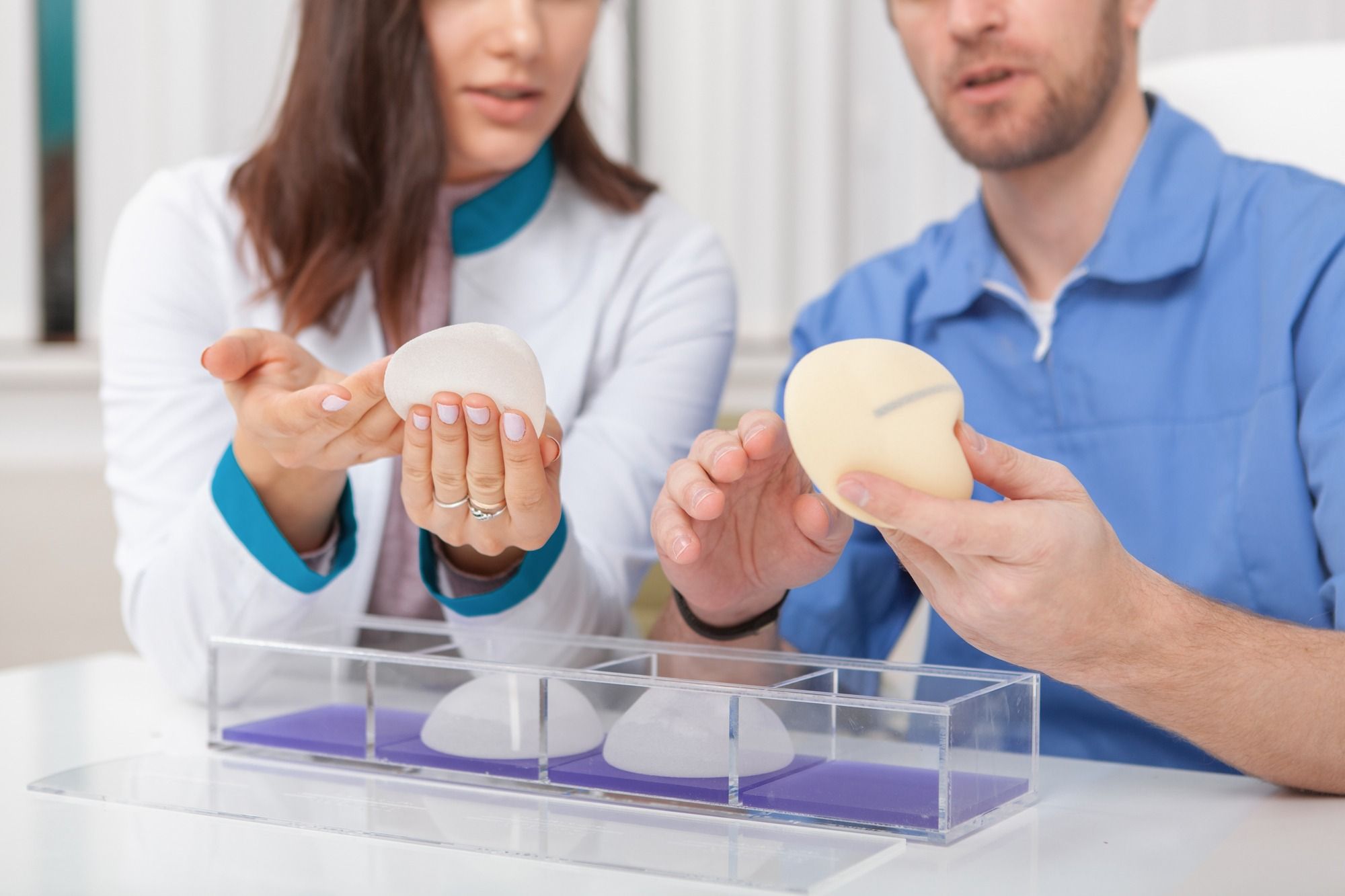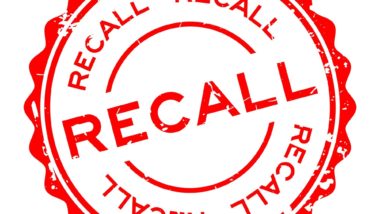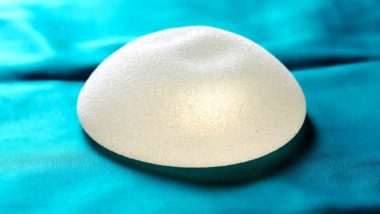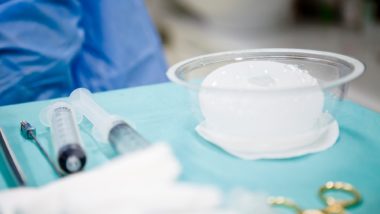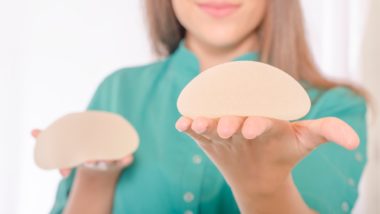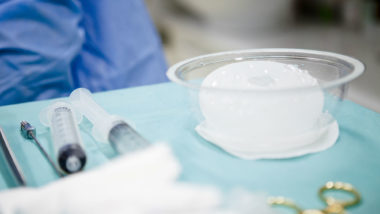Top Class Actions’s website and social media posts use affiliate links. If you make a purchase using such links, we may receive a commission, but it will not result in any additional charges to you. Please review our Affiliate Link Disclosure for more information.
For Americans looking for information on a medical device, implant, or drug, there are few sources more useful than the Food and Drug Administration (FDA). The FDA is charged with regulating the “safety, efficacy, and security of… drugs, biological products… medical devices… our nation’s food supply, cosmetics, and products that emit radiation.” Patients can find information regarding breast implant cancer risk factors in addition to other information about these industries, regulations, and any recalls they have issued.
One subject on which the FDA has a wealth of useful information is breast implants. The FDA breast implants page is an excellent resource for anyone considering implants or anyone who has experienced issues with their implants. It’s important to note that this resource is meant to supplement, not replace, a physician’s advice.
FDA Breast Implants Overview
The FDA breast implants information page lays out two different purposes for breast implants: augmentation and reconstruction. Augmentation involves using an implant to increase the size of the breasts, and reconstruction involves using an implant to replace tissue that has been removed or which failed to develop properly.
Breast implants can be separated into two types: saline-filled and silicone gel-filled, though both types have a silicone shell. These breast implants come in a variety of shapes and sizes depending on the patient’s needs.
What Should You Consider Before Getting Breast Implants?
There are several important factors to consider before getting breast implants. First, breast implants aren’t meant to last forever, and the longer you have them, the more likely it is you will experience complications or need to have your implants removed. You should plan to have further operations beyond the initial insertion.
These follow-up operations may not be covered by your insurance, and implant removal can change your breasts, resulting in dimpling, wrinkles, tissue loss, or puckering. Before getting breast implants, you should also consider the short- and long-term complications associated with these devices.
Are There Any Long Term Risks?
The FDA breast implants risk information states that breast implants require monitoring for as long as you have them. This is largely due to the complications associated with these implants. Implant complications may cause breast pain or changes in sensation. These complications may result in further surgeries. Scar tissue may form around the implant potentially damaging it. This damage can cause an implant to rupture or deflate.
Further compilations may develop over time. Breast implants have been known to cause connective tissue disease, reproductive problems, breast cancer, and other systemic symptoms.
The most well-known complication of breast implants is breast implant associated-anaplastic large cell lymphoma (BIA-ALCL), a type of non-Hodgkin’s lymphoma. This cancer of the immune system has led to a number of suits being filed against breast implant manufacturers as well as recalls.
In addition to cancer, some women claim to have developed a condition known as breast implant illness. According to women who have experienced side effects after receiving breast implants, breast implant illness may cause flu-like symptoms, memory loss or cognitive difficulties, numbness and tingling in the arms and legs, joint and muscle pain, hair loss, dry eyes, blurred vision, chronic fatigue, and skin rashes or hives.
Some women have also reported breast pain, while others claim to have developed new food sensitivities. In serious cases, women have reported difficulty breathing. Women who have had their implants removed have mostly reported that their symptoms improved. In addition to removing the implant, it is often important to also remove the capsule of scar tissue that forms around the implant.
Do Breast Implants Affect Mammograms?

According to the Center for Diagnostic Imaging, having breast implants does not increase a woman’s risk for breast cancer, but it does present risks that women without implants won’t face.
For instance, a tumor may be able to hide behind a breast implant because the American Cancer Society points out mammogram X-ray machines are unable to focus through breast implants. Without being able to see that underlying breast tissue, the radiologist and your doctor might miss initial signs of breast cancer.
How well your breast tissue can be viewed with a mammogram also depends upon whether the plastic surgeon has placed the implant on top of or behind the pectoralis muscle of the breast. Depending upon the implant’s positioning, the mammography technologist can move the implant out of the way in order to obtain a better picture of the breast tissue.
Some patients express concern that their implants actually will pop open or begin to leak as the result of a mammogram, but mammogram technologists are usually able to push an implant to the side to ensure only the breast tissue and not the implant is compressed during the test.
According to FDA breast implants information, calcium deposits may form hard lumps under the skin around an implant, and a mammogram may mistake these calcifications for cancer.
What Are the FDA Guidelines for Breast Implant Manufacturers?
All medical devices sold in the United States must be approved by the FDA. This approval requires inspections of manufacturing facilities, labeling guideline fulfillment, and quality assurance. There are further requirements that must be met post-approval regarding quality assurance: manufacturers must conduct “studies to further evaluate the safety and effectiveness of the products and to answer additional scientific questions about the long-term safety and potential risks of breast implants that their premarket clinical trials were not designed to answer.”
In October 2019, the FDA announced new guidelines for breast implant manufacturers. These guidelines require manufacturers to include specific information on the labeling of their products. These requirements include a boxed warning, a patient device card, patient decision checklist, implant rupture screening recommendations, and device descriptions including the “types and quantities of chemicals and heavy metals found in or released by breast implants”.
Have Any FDA Breast Implants Cancer Warnings Been Issued?
The FDA has issued warnings to manufacturers regarding the health concerns associated with certain breast implants. The FDA breast implants warnings cite a number of cases of BIA-ALCL that have occurred worldwide as a cause for caution from breast implant manufacturers.
In May 2020, the FDA sent warning letters to two different companies: Allergan of California and Ideal Implant Incorporated of Texas. The letter to Allergan states that the company failed to assess the long-term risks associated with two of their implants. The letter to Ideal states that the company failed to meet good manufacturing requirements and also failed to meet adverse event reporting requirements.
In August 2020, the FDA issued an updated breast implant safety announcement further linking BIA-ALCL to Allergan implants. According to the agency, of the 733 unique cases of BIA-ALCL known at the time, 620 cases involved Allergan implants. An additional 47 cases failed to identify an implant manufacturer, but may have been linked to Allergan implants.
The FDA identified similar trends in BIA-ALCL deaths. Of the 36 deaths linked to breast implant cancer, only 16 specified an implant manufacturer. Of these 16 cases, 15 deceased patients had Allergan breast implants.
This analysis also linked BIA-ALCL to textured implants. Where the information was known, 496 of 733 total cases involved textured implants. Similarly, 16 deaths involved textured implants.
In September 2020, the FDA issued its final guidance of breast implant safety including recommendations for manufacturers to include a boxed warning and patient decision complex in their product packaging.
“As new information has become available about the risks and complications of breast implants, it is critical that women have access to information they need to make informed decisions,” Binita Ashar, Director of the Office of Surgical and Infection Control Devices in the Center for Devices and Radiological Health, said in the FDA announcement.
“It is important that patients discuss the risks and benefits of breast implants with their health care provider and we hope that these labeling recommendations will help in facilitating these discussions.”
Steps After Breast Implant Cancer
Unfortunately, many women who choose to receive breast implants do so after having a mastectomy as part of breast cancer treatment. For women who have already had cancer, the possibility of developing the condition again due to their implants may be terrifying.
While Allergan has offered to give women with the recalled implants a free set of new implants and cover up to $7,500 for surgical fees, this price is far less than what the procedure of replacing the implants may actually end up costing.
As breast implant and replacement surgery is considered elective, it is generally not covered by insurance, leaving women to foot the bill themselves. It has not been recommended that women have their recalled FDA breast implants removed unless they are experiencing symptoms.
Join a Free Breast Implants Side Effects Lawsuit Investigation
You may qualify for this breast implant investigation under these circumstances:
- You were implanted with BIOCELLE or Natrelle textured breast implants;
- You were diagnosed with Breast Implant-Associated Anaplastic Large Cell Lymphoma (BIA ALCL); or
- You have had revision surgery after learning about this cancer risk.
Fill out the form on this page for a free case evaluation by a breast implants injury attorney.
This article is not legal advice. It is presented
for informational purposes only.
ATTORNEY ADVERTISING
Top Class Actions is a Proud Member of the American Bar Association
LEGAL INFORMATION IS NOT LEGAL ADVICE
Top Class Actions Legal Statement
©2008 – 2024 Top Class Actions® LLC
Various Trademarks held by their respective owners
This website is not intended for viewing or usage by European Union citizens.
Get Help – It’s Free
Join a Free Breast Implants Side Effects Lawsuit Investigation
If you qualify, an attorney will contact you to discuss the details of your potential case at no charge to you.
PLEASE NOTE: If you want to participate in this investigation, it is imperative that you reply to the law firm if they call or email you. Failing to do so may result in you not getting signed up as a client or getting you dropped as a client.
E-mail any problems with this form to:
Questions@TopClassActions.com.

